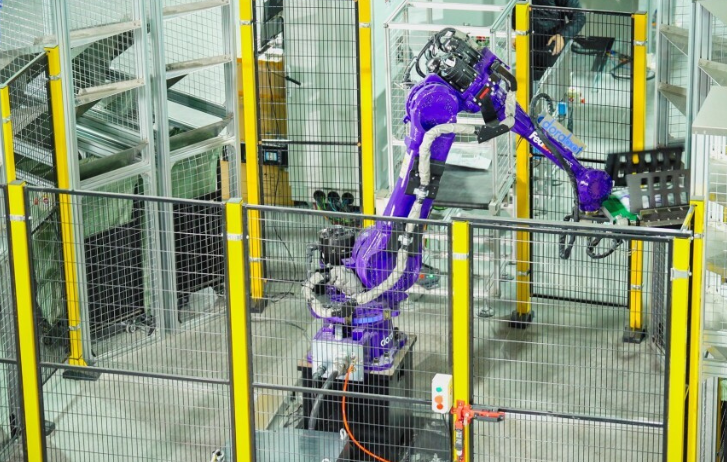
Generative AI: A New Frontier
By Kawal Preet | First published: December 19, 2023 Updated: October 9, 2024
The applications for genAI seem limitless, with new breakthroughs happening all the time. Kawal Preet explores how small businesses are using genAI solutions for efficiency, digital transformation and growth.
Generative AI is everywhere – used by businesses, schools and global consumers every day.
In Asia Pacific, SMEs and enterprises have many opportunities to leverage genAI to transform operations and supercharge efficiency.
From educating employees to creating safeguards for responsible use, I explore how genAI can be implemented to drive economic growth.
When OpenAI released ChatGPT for testing in November 2022, it sparked a global fascination with the possibilities of generative AI (or genAI). Since then, genAI has integrated very quickly into both consumer habits and business operations. From caution to bullishness, the debate on how best to limit or harness AI’s evolving capabilities has been fierce.
Ever since the internet was initially flooded by examples of what AI could create from a set of user prompts, endless think pieces have argued the advantages vs dangers of mass AI adoption.
But, despite some wariness, the adoption of genAI is gaining pace. And the potential value of AI to small businesses, corporations, the economy and society is huge. McKinsey believes genAI has the potential to generate value equivalent to US$2.6 trillion to US$4.4 trillion in global corporate profits annually.
What is the main goal of generative AI?
Increasingly, businesses are moving away from just using AI for limited tasks in specific areas. They are now deploying it across all areas of operations and planning to unlock efficiency at every turn.
At FedEx, we’ve known for a long time that data and digitization are absolutely crucial to how we transform for what’s next. Our network extends beyond the physical. It’s also the source of tremendous data and insights about the market, our customers, the carbon footprint of deliveries – and more. All that intelligence is extremely valuable, and we’re putting it to the best possible use
At FedEx, we’ve known for a long time that data and digitization are absolutely crucial to how we transform for what’s next.
By digitizing more processes, and unlocking data insights for the benefit of our customers, we’re making supply chains smarter for everyone.
What genAI can do – and the potential for small businesses
It’s not just businesses the size of ours that are looking into AI. The obvious benefit for SMEs is time. Writing, responding to stakeholders, categorizing, and organizing – all these repetitive admin tasks really do add up and cost money.
For instance, tools like ChatGPT, Microsoft CoPilot and Google’s Gemini can generate checklists, emails, essays, businesses proposals and more. GenAI can also unlock visualization for simulations, mock-ups and designs. This can cover anything from a proposed new office layout for a growing team to AI-generated designs for a new company logo.
Currently, most of the tools available can be accessed for free – a major benefit for small businesses without big budgets.
3 areas where SMEs can use GenAI tools
Addressing the most important growth areas for this new technology can help SMEs to level up and become more efficient:
1. Boost efficiency at work with auto-generation
SMEs have limited resources for business growth, strategy and pursuing new opportunities. In many cases, genAI can help small businesses become more productive without increasing headcount.
AI tools such as Polycoder, MutableAI, OpenAI Codex, and Seek can generate code for mobile apps, websites, and SQL queries. Artwork and images can also be generated with platforms like Dall-E, Stable Diffusion Online, and Playform.
Other functions of genAI include creating marketing content and summarizing meetings. Automating these tasks allows staff to focus on higher-value, skilled work.
2. Increase capacity for complex tasks
There is a serious limit to the human capacity for processing large amounts of information. GenAI tools can organize and analyze customer data, and generate customized experiences, recommendations, and business strategies with greater speed.
This use of genAI is particularly useful for SMEs in Asia. In the 2022 ASEAN SME Transformation Study, 44% of 1,500 SME respondents (from Singapore, Indonesia, Malaysia, Thailand and Vietnam) singled out customer engagement as a pressing concern. Tools such as Salesforce’s Einstein GPT can capture data-driven insights to improve decision-making and customer relationship management.
3. Education and upskilling with AI
Staff training can be a real challenge for resource-constrained SMEs. Ensuring employees are up to speed with the latest digital tools is an especially important goal for SMEs in Asia. A 2023 International Monetary Fund paper showed that SMEs in emerging and developing Asia lacked a digital-savvy workforce.
Valuable institutional knowledge can be encoded in genAI tools, and used to teach employees by generating simulated scenarios, feedback, and information.
How small businesses can get started with genAI
For these uses of genAI to be effective, it is important to lay some groundwork.
One of the biggest conversations happening in companies of every size right now is where and how to start. To get going with AI, businesses need to find ways to train their team to work with genAI tools. One example? Putting employees through courses on crafting AI prompts.
This requires a subject matter expert who can be trained in-house or outsourced. Once your workforce has gained more AI experience, a good next step is to build institutional knowledge by cataloging successes and lessons in a shared database.
Tools and platforms that businesses use daily need to be ready for integration with genAI tools. It’s also going to require working closely with IT – sometimes a weak spot for start-ups or small operations – to take the right cybersecurity precautions. Most critically, AI needs human oversight.
How FedEx is using AI
Every day, more than 14 million packages pass through FedEx facilities worldwide. At that scale, we’re always looking for more efficient and sustainable ways to run our business. In September 2023, we collaborated with start-up Dexterity AI in the US to address one of the most challenging tasks in our business: truck loading.
Stacking the wide variety of sizes, shapes, and weights in the shipments we handle is highly complex, and taxing when performed manually. Dexterity AI’s proprietary mobile robot design, DexR, navigates autonomously, and machine learning technology helps it to continuously improve.
In APAC, we’ve been using AI in our sorting operations since 2022, with an 2022, we introduced an AI-powered intelligent sorting robot in Singapore, and a similar sorting robot at our South China E-Commerce Shipment Sorting Center in Guangzhou.
More recently, we’ve developed a cutting-edge tool that uses AI to simplify manual tasks performed by our customs clearance team. We’re also using AI for demand forecasting.
And our AI-powered Intelligent Virtual Assistant customer service tool is transforming the way we help solve customer pain points.
Being digitally-led goes beyond just using AI
When it comes to how we’re seeing AI being used in the region, some Asia markets are more advanced than others. I see many advantages to AI, but we need to be clear-sighted about usage.
Business leaders need to ask questions, remain objective, seek expert advice, and not sacrifice autonomy for the sake of automation and convenience. I look forward to seeing how SMEs adapt to a technology that’s fast becoming the norm.
SHARE THIS STORY
- How To Ship A Giant Panda
- How To Make Freight Shipments Work For Your Small Business
- The Rise Of Intra-Asia Trade: Opportunities In The China-Southeast Asia Corridor
- Southeast Asia: The Next Manufacturing Powerhouse?
- 8 Most Unusual Shipments In The History Of FedEx
- Where Do Old Planes Go When They Retire?
Sign up now and save on your shipping rates!
Sign up now and earn discounts by shipping instantly with FedEx Ship ManagerTM at fedex.com.
Recommended For You

A Responsible AI Strategy Is Essential For Your Business. Here’s Why
Mapping a strategy for the responsible use of AI might just be one of your most important business priorities this year.
Read More
Introducing The 2024 Tech Trends To Watch
Tech is moving at breakneck speed. For SMEs, early adoption of the trends that matter can help to scale up and improve business performance.
Read More
Supply Chain 5.0: The Transformative Power Of AI
Kawal Preet unpacks how AI and digital ecosystems are fundamental to how both Asian and global supply chains are shaping and accelerating change.
Read More


